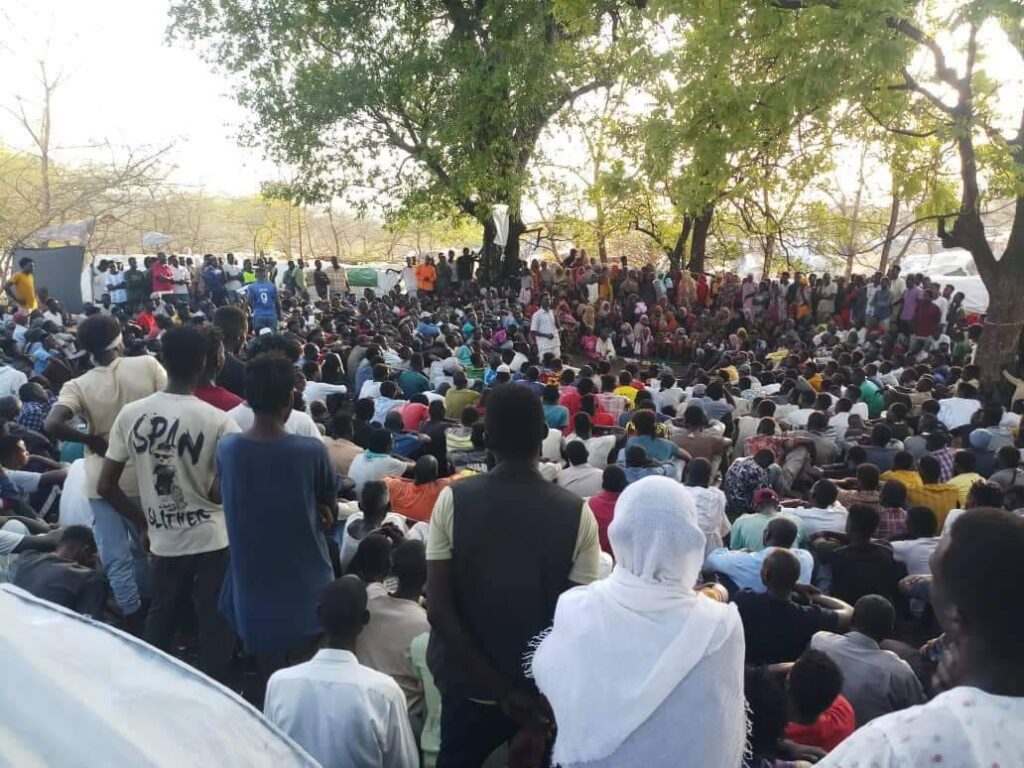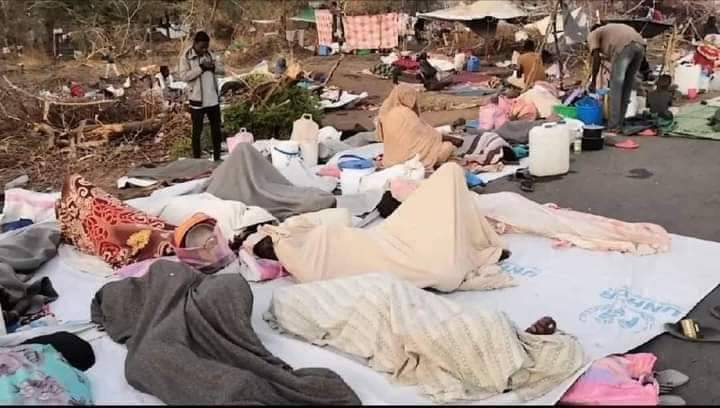A journalist & academic with a Ph.D. in applied linguistics. He works in various fields; teaching, translation, editing, writing for digital newspapers, and human rights defense.
Ever since the outbreak of armed conflict in Sudan in April 2023, a vast number of Sudanese individuals have been forced to leave their homes and seek refuge in neighboring countries such as Chad, Egypt, Ethiopia, and others. The humanitarian crisis resulting from the war in Sudan is unparalleled and stands as the worst in the world. The world response to this humanitarian crisis remains inadequate. In Egypt, the refugees face deportation, while in Ethiopia; they encounter movement restriction by the Ethiopian government and frequent attacks by militias.
An Amnesty International report published this week on June 19, 2024 describes the situation of Sudanese refugees in Egypt as “handcuffed like dangerous criminals”. The report exposes the practice of rounding up Sudanese refugees and being taken back to their home Sudan, an active conflict zone without due process or opportunity to claim asylum in flagrant violation of international law.
Since the war erupted in Sudan, the Sudanese population in Egypt has significantly increased due to the arrival of over 500,000 refugees through irregular border crossings. Based on the report, the Egyptian authorities have detained and expelled approximately 800 Sudanese individuals were forcibly sent back to Sudan without being given the opportunity to seek asylum or contest the deportation orders between January and March 2024.
Ahmed Adam, a (25) years old left Khartoum in last May and illegally entered Egypt says “I fled to Egypt in search of safety. I registered with UNHCR, a United Nations High Commissioner for Refugees, but I don’t have the visa and now I’m staying with my cousin and almost most of my time in the apartment. I still don’t feel secure here. I’m afraid to go out on the streets and walk, worried that the police might arrest me and send me back to Sudan.”
In August 2023, a prime ministerial decree was issued in Egypt, leading to a surge in mass arrests and expulsions of foreign nationals who needed to legalize their status. This resulted in an increase in xenophobic and racist sentiments online and in the media. Despite Egypt has poor human rights record and mistreatment of migrants and refugees, the EU has increased cooperation with the country on migration and border control.
Sara Hashash, Deputy Regional Director for the Middle East and North Africa at Amnesty International says “It is unfathomable that Sudanese women, men and children fleeing the armed conflict in their country and seeking safety across the border into Egypt, are being rounded up en masse and arbitrarily detained in deplorable and inhumane conditions before being unlawfully deported.”

In Ethiopia the situation is maybe even worse, the refugees there even prefer to go back home, despite the dangers. Ethiopia has received over 6,000 Sudanese refugees, who are relocated in camps such as Al-Koma, Komer, and Olala in the north-western Amhara region. It has been plagued by conflict between local militias and the Federal army for the past two years, leading to an emergency decree and a lack of internet connectivity. The refugees have reported being targeted by gunmen in recent weeks, with incidents of armed robberies and kidnappings for ransom on the rise. Due to the lack of protection from authorities, they have resorted to seeking shelter along roads. Despite hunger strikes and pleas for help from aid organizations and the government, there has been no response. The refugees continue to face movement restrictions imposed by the government.
A video surfaced on the social media shows Sudanese refugee women with tears in their eyes as they recount their experiences of being attacked by the militias and killing their children. A woman in sorrow says, “Why are our children being murdered by the militias? Simply because they went out of the camps to find water to drink.” She continues, “The organizations are not addressing our situation, and things have only gotten worse. We are dying every day without any explanation. We just want to be left alone and go back to Sudan..”


